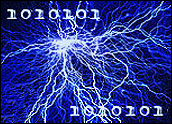
An Irish technology development company Steorn claims it can produce free, clean and constant energy without taking the energy from an external source. In effect, the company claims it has produced an energy-making machine it calls Orbo. Despite apparently violating fundamental laws of physics, Steorn planned to demonstrate its machine to the public Wednesday at the Kinetica Museum gallery in London.
Steorn, however, ran into a minor problem — Orbo isn’t working.
Steorn posted a note on its Web site:
“We are experiencing some technical difficulties with the demo unit in London. Our initial assessment indicates that this is probably due to the intense heat from the camera lighting. We have commenced a technical assessment and will provide an update later today.”
So Far, No Update
Orbo’s technology is based on the interaction of magnetic fields, Steorn says. The exhibit on display was supposed to demonstrate work being done by the spinning of a clear polycarbonate wheel with no recourse to external energy; furthermore, the company claims that Orbo technology is fully scalable and can be applied to virtually all devices requiring energy, from cellular phones to cars.
“We’ve decided to demonstrate our Orbo technology in a global and public forum to raise greater awareness amongst the product development community. We want to give equal access to developers so they can use this technology to power products that will bring benefits to everyone. Ultimately, it’s also a reminder to the world that this free energy technology is being validated and will definitely happen,” Sean McCarthy, CEO of Steorn commented prior to the demonstration.
“We expect the vast majority of our audience to view the exhibit online, but rather than just stream a demonstration of the technology from an undisclosed location, we purposely decided to have a tangible working device that people could come and physically see for themselves,” he noted.
22 Scientists
Prior to the Orbo, Steorn has worked in the security field by developing technologies that address plastic card fraud and optical disc fraud. Apparently, the company stumbled up on the Orbo technology and has been trying to get the scientific community to pay attention.
Last year, Steorn says it placed an ad in The Economist to attract the attention of the world’s leading scientists working in the field of experimental physics. The advertisement issued a challenge to the world’s scientific community to step forward and prove its claims wrong. Steorn says several thousand scientists stepped forward to take the challenge, but only 22 were appointed to test Steorn’s claims. The review process began in January and is still ongoing. Steorn will publish the results of the process following its completion, the company says.
Happily Ever After
“If it’s true, then all of our problems are solved, but I would think that’s not going to happen,” John Belcher, a professor at the Massachusetts Institute of Technology (MIT) with expertise in electromagnetism, told TechNewsWorld.
“Electromagnetism is one of the most studied theories, and people understand very well how energy is conserved, how energy flows around a system, and I would say it’s just impossible unless they really found something absolutely, incredibly new,” he said.
There’s a slim possibility that Steorn is measuring added energy from some sort of external energy source.
When solar storms hit the Earth, they can cause a big change in the magnetic field of the Earth, which can introduce energy to the atmosphere, Belcher noted.
“There’s a lot of energy, but it’s spread out over a huge area, so the amount of energy per square meter is very small. So, it’s very hard to tap into that energy,” he explained. “I would doubt they would be getting anything like that.”
Either way, Belcher noted that harnessing this kind of energy in the atmosphere would be difficult, if not impossible, to accomplish on a consistent basis.
“If they’ve come up with something new, they are a lot brighter than a lot of other very bright people,” he added. “I mean, I would be delighted if it were true, and I would just retire and we would all live happily ever after. But I don’t think it’s going to be true.”




















































